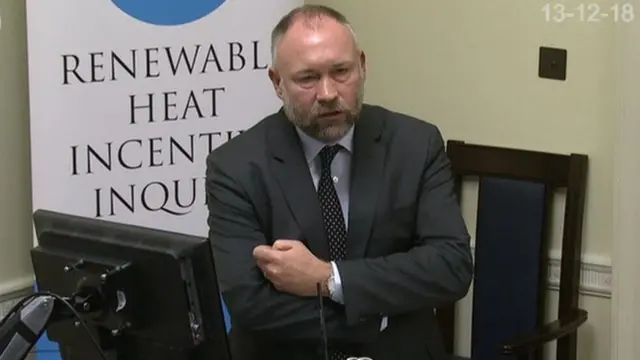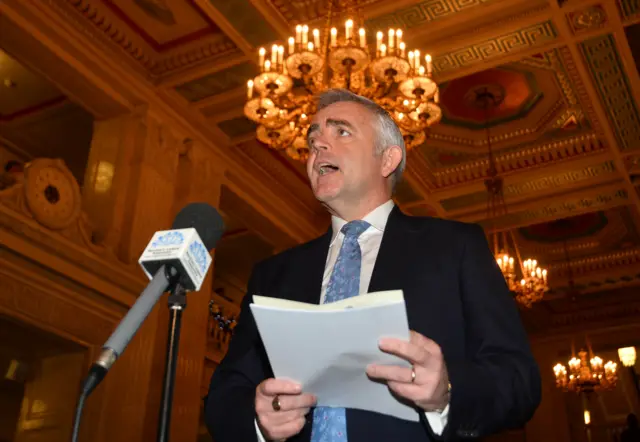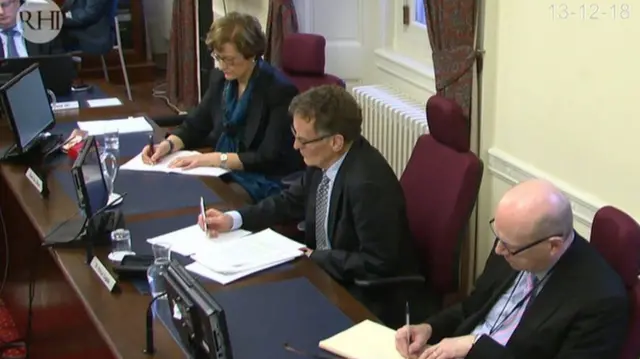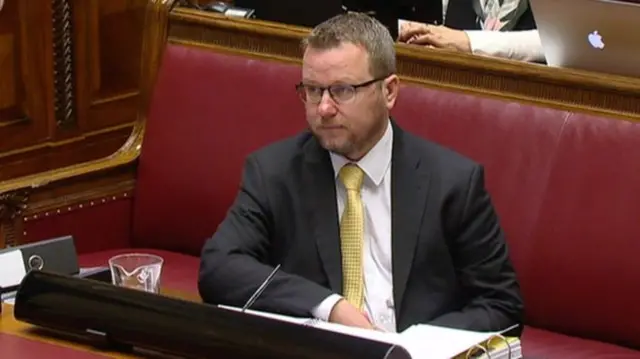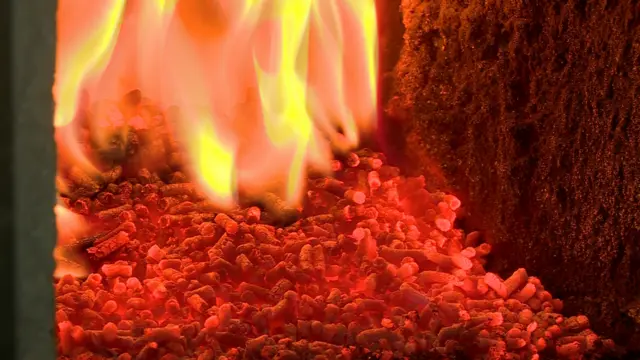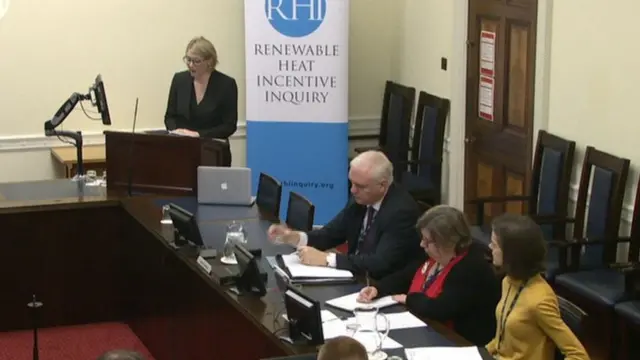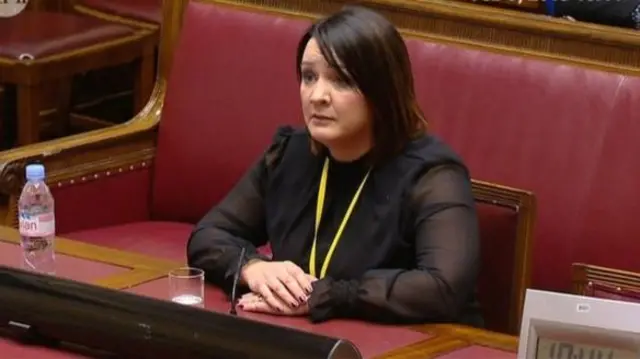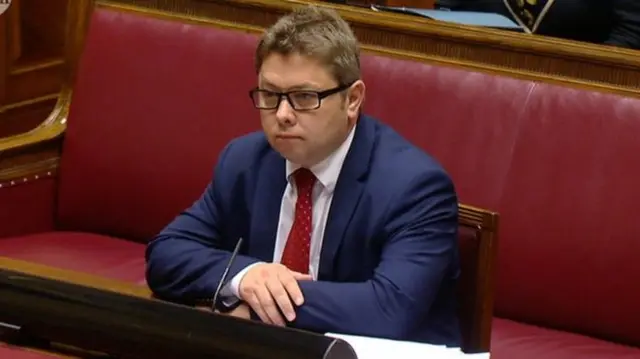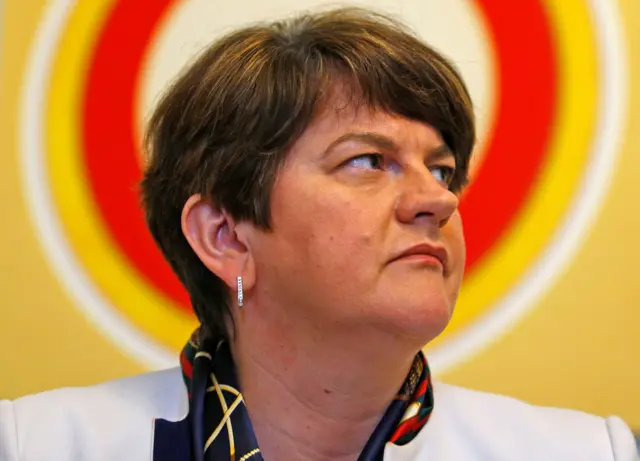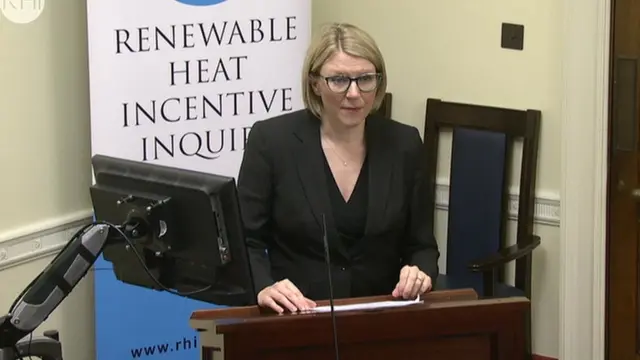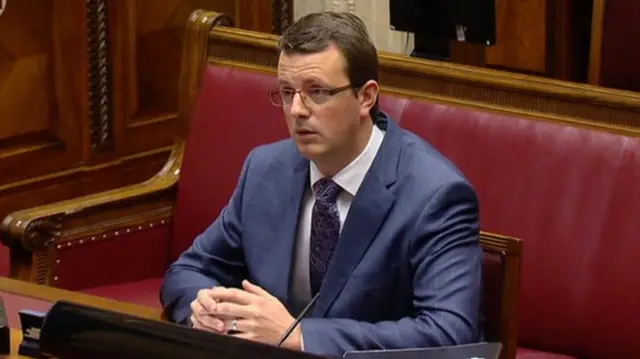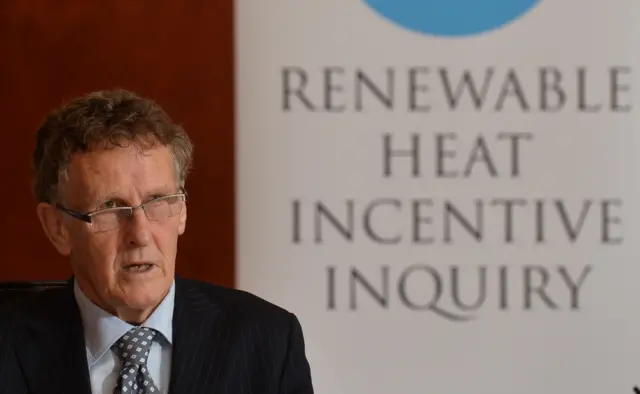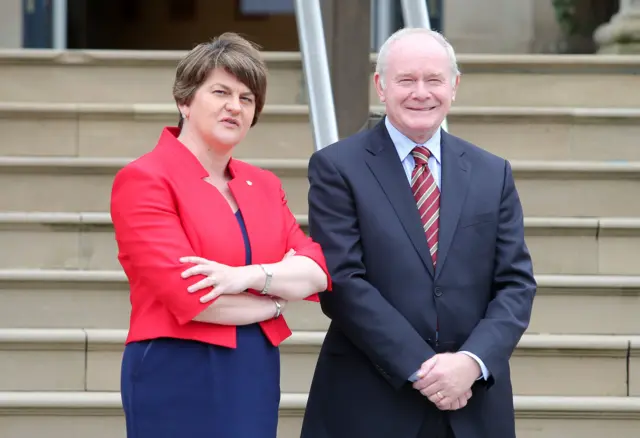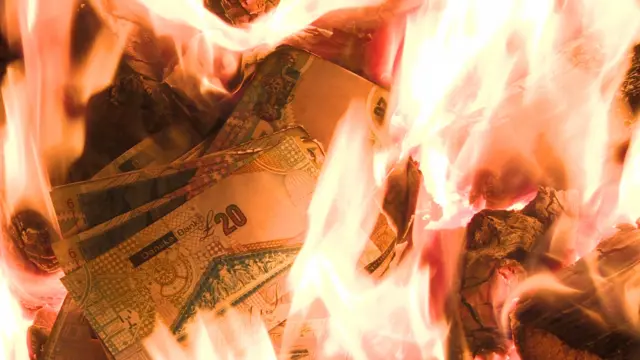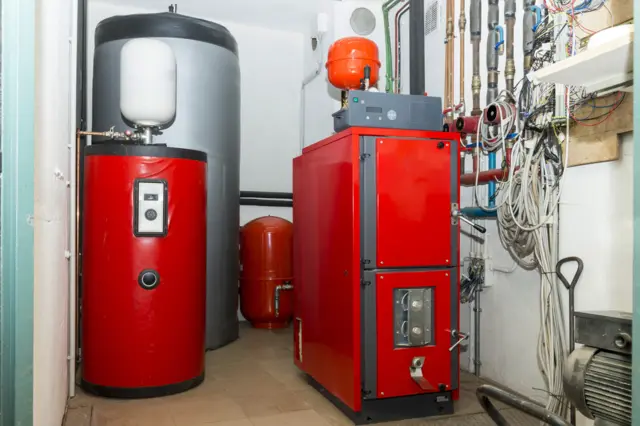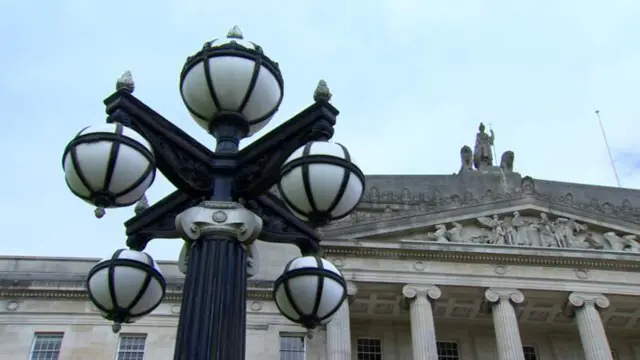That's all for today...published at 12:39 GMT 13 December 2018
We've come to abrupt halt as inquiry barrister Joseph Aiken's famous railway metaphors hit the buffers.
"This train has finally reached its destination and is being parked up for Christmas," he says.
Inquiry chair Sir Patrick Coghlin thanks him profusely for "the degree of work and detail that you have put into it".
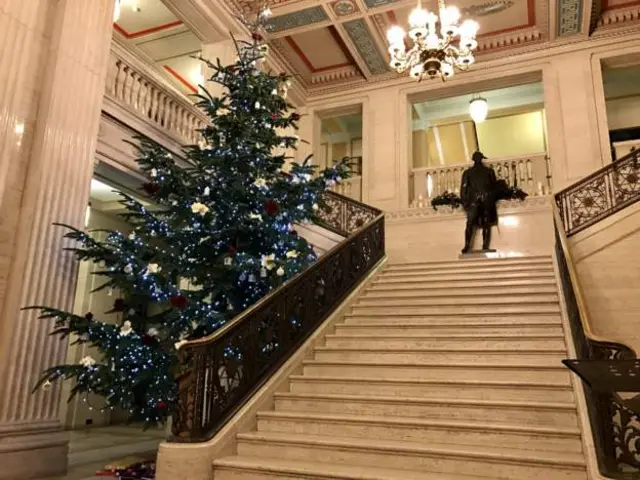
The speed of today's presentations has taken the panel by surprise so they have time to nip off and get some last-minute Christmas cards written.
Join us again tomorrow at 09:45 for what we promise will be the final public session of the RHI Inquiry.

